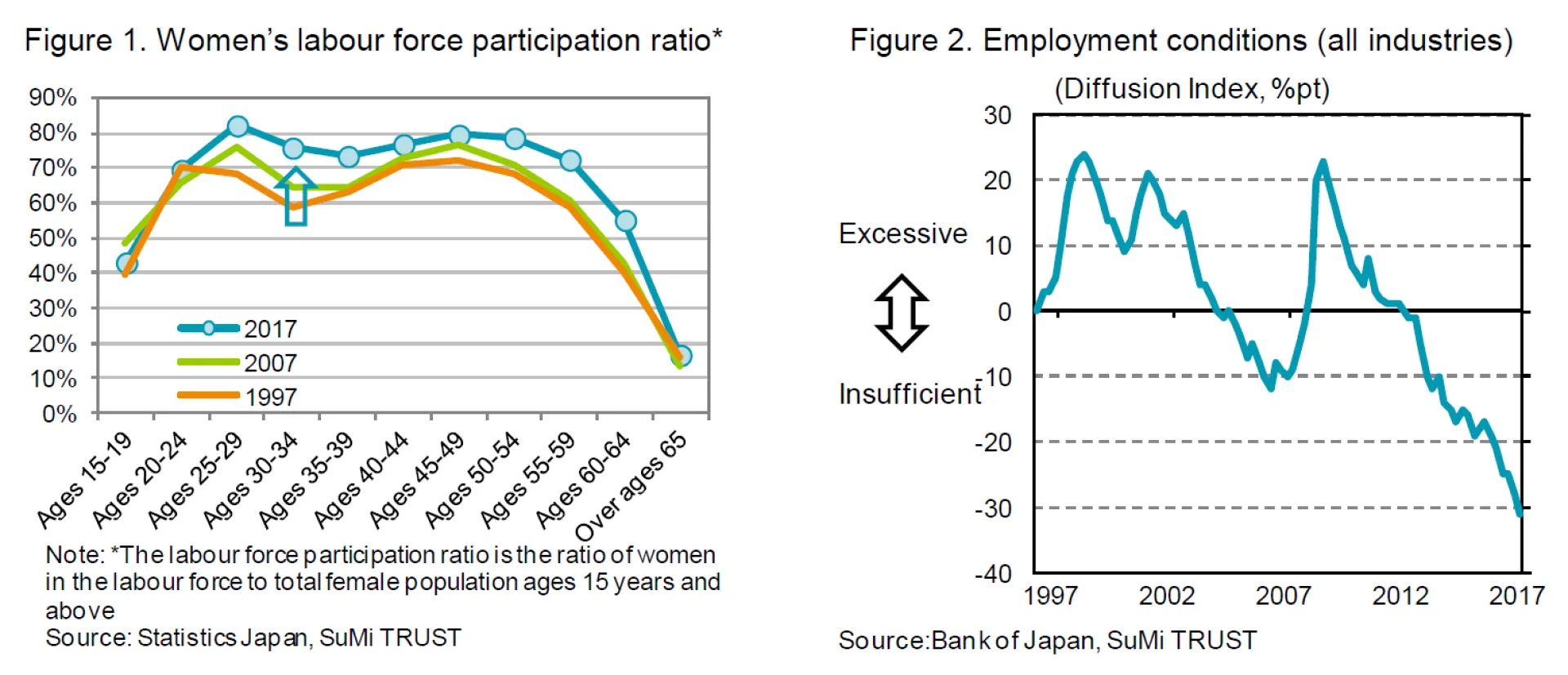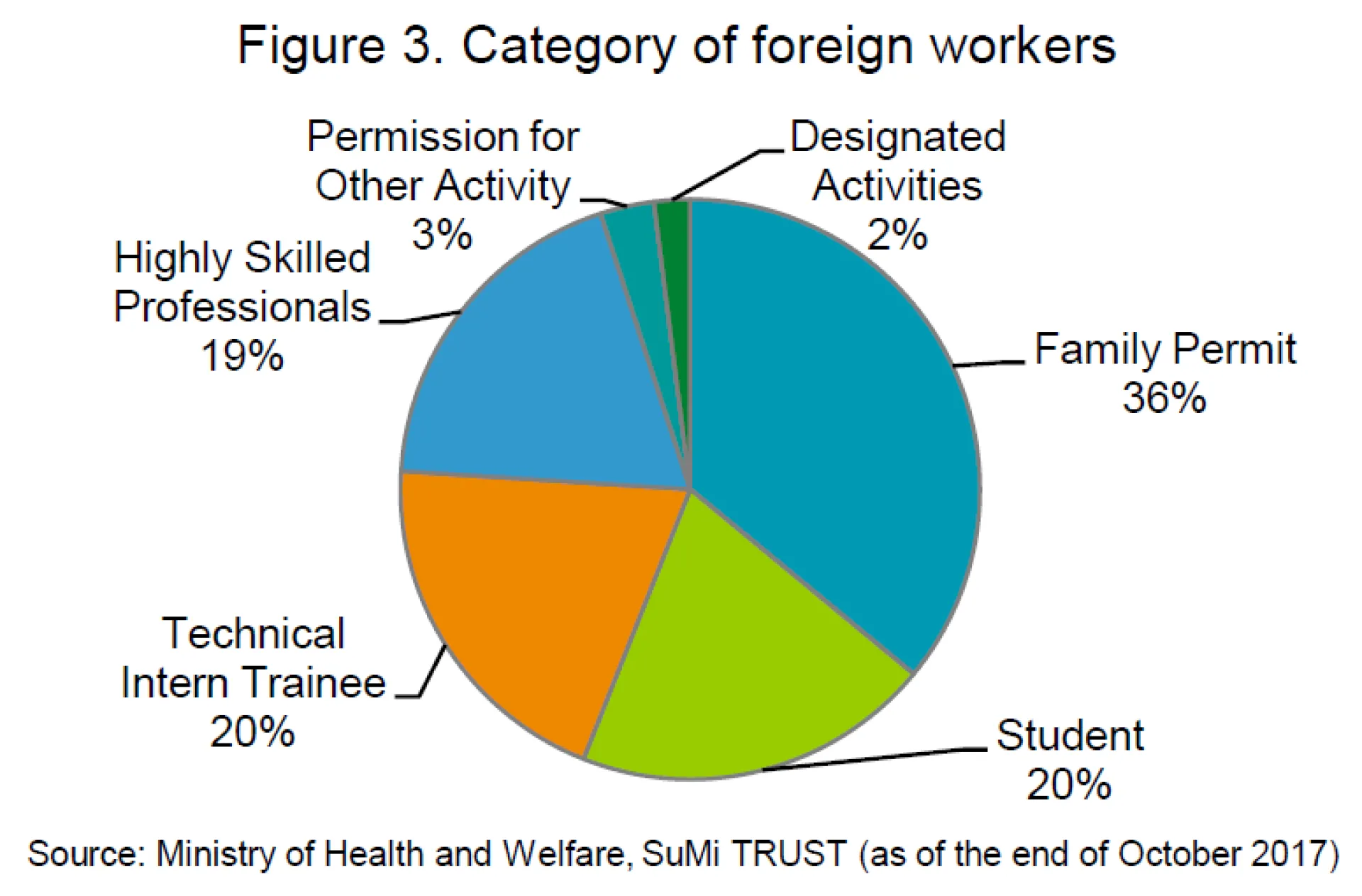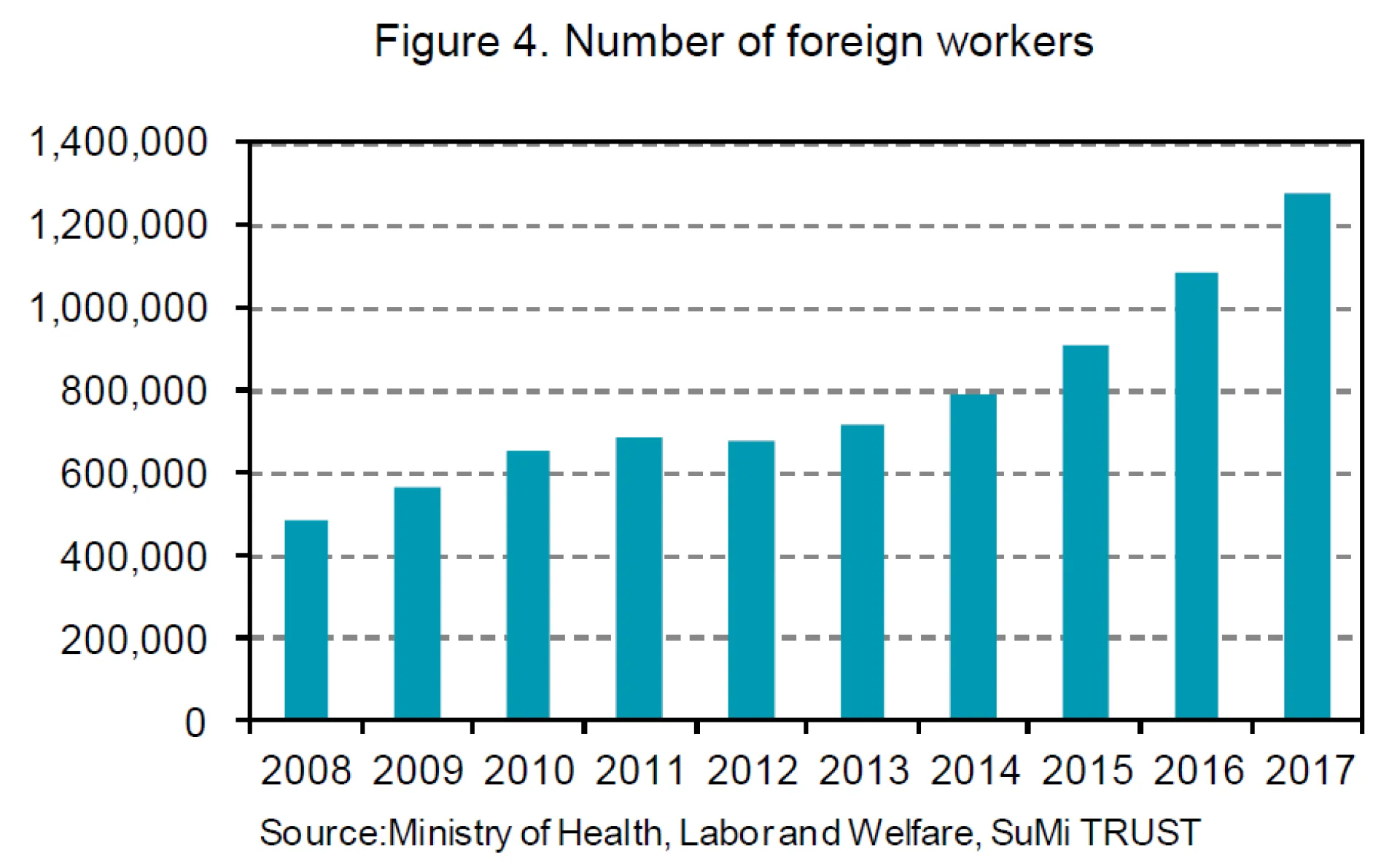
The new residency qualification is called ‘Specific Skill’ and is split into type 1 and type 2. Type 1 is given to foreigners who have "reasonable knowledge or experience" and covers relatively unskilled work categories. Applicants can obtain a type 1 qualification when they complete up to 5 years of a technical internship or pass work skill exams and a Japanese language test. The period of stay is 5 years in total and applicants cannot be accompanied by their family. Type1 is intended for use in 14 industries such as nursing care, construction, agriculture and food services. Type 2 is given to those who have passed advanced work skill exams and who take up jobs requiring specific skills such as a foreman at a construction site. The status of residence can be renewed every one to three years, and there is no limit on the number of renewals as long as the applicant passes the examination on renewal. This path may pave way for long-term employment and future permanent residence. Unlike type 1, type 2 applicants can be accompanied by their family.
According to the Ministry of Health, Labour and Welfare, as of the end of October 2017, about 40% of foreign workers (or about 520,000 people) work under student and technical intern trainee status. In fact, foreign people under the status of technical intern trainees and students are now engaged in unskilled labour.

The government has accepted foreign workers under the pretext of international contribution by providing and teaching Japanese technology to foreign workers from developing countries, while not officially accepting foreign unskilled labour. This idea was established by the Amended Immigration Control and Refugee Recognition Act in 1990. Work qualifications were limited to skilled foreign persons with expertise, such as doctors and university professors.
The creation of the Specific Skill qualification is important because it reflects a significant policy change. Japan's Immigration Control Act has not officially allowed unskilled workers until now and this new type of qualification makes the official acceptance of unskilled workers possible.
There has been much debate over how the acceptance of unskilled workers will affect Japan. Just taking the economy alone, there are aspects that contribute to raising the potential growth rate through expansion of labour supply, while possibly inducing lower wages. Although both viewpoints seem to be correct to some extent, given the severity of the labour shortage the Japanese economy is facing, it is time to reap the benefits of allowing unskilled workers.
The revision of the law was mainly focused on correcting the gap between reality and the Amended Immigration Control and Refugee Recognition Act in 1990 in the first place, on the premise that the number of unskilled workers had already increased through existing technical intern traineeship and student qualifications. It seems that applications for the new qualifications are primarily coming from those transferring from existing qualifications. Therefore, it is projected that the revision of the law will not necessarily increase the total number of foreign workers rapidly. However, as the divergence between the previous system and actual situation is corrected, and a legal working environment is established, the pace of increase in foreign workers is expected to accelerate. Therefore companies specialising in the temporary staffing of foreign workers stand to benefit. In the following section we will consider some examples of these companies.

Stock of the month
Here, we introduce staffing companies which stand to gain as a result of the amended law and the accelerated acceptance of foreign workers.
Link and Motivation (2170 JP)
Link and Motivation provides consulting services for recruitment, human resource development, culture change, and institutional design mainly for companies with a one-stop service. Since its inception, their management concept has been "motivation engineering" devised by integrating management science, social system theory, behavioral economics and psychology. The company was promoted to the First Section of the Tokyo Stock Exchange in just eight years since its founding. Today, the company conducts "organisational development", an event, media and outsourcing business derived from corporate consulting, "individual development", which operates career schools and cram schools, and a “matching” business which links organisations with individuals by placing language instructors to elementary, junior high and senior high schools, and recruitment and temporary staffing service. Its subsidiary, Link Japan Career, has developed support services for foreign people to provide recruitment, acceptance, and consolidation support as a one-stop solution.
Outsourcing (2427 JP)
Outsourcing deploys temporary staffing services, assigning regular employees in the fields of technology, manufacturing and services both in Japan and overseas. In recent years, the company has also been focusing on the acquisition of staffing agencies overseas (Australia, UK, Germany, etc.). The company has two areas of strength: 1) an organisation that is deeply involved in overseas local "trainee sending organisations" and domestic "supervising organisations", and, 2) a company network in Asia through its consolidated subsidiaries. Since the revised Immigration Control Act has passed, business opportunities in company management and administration should expand because technical intern trainees will legally be able to work in Japan after completion of training. The number of technical intern trainees to be managed by the company was 1,478 as at the end of December 2016 and increased to 5,628 as at the end of December 2017. It is expected to have more than 10,000 by the end of December 2018 and over 100,000 by the end of December 2025.
